Disclosure: This article contains affiliate links. We may earn a commission from purchases at no extra cost to you, which helps our travel content.
Standing before the Parthenon at dawn, I watched golden light illuminate those ancient columns—the same spectacle that has greeted Athenians for 2,500 years. Athens holds a particular magic for those of us drawn to places where history breathes through stone and art. Yet beyond its renowned monuments lies a vibrant modern city where tradition and innovation dance together in delightful harmony. After numerous visits spanning three decades, I've curated these seven experiences that capture Athens' soul—where sacred antiquity and contemporary Greek life intertwine.
Dawn Pilgrimage to the Acropolis: A Sacred Encounter
There exists a profound difference between visiting the Acropolis and experiencing it. My recommendation is unequivocal: arrive before the gates open. Join the small gathering of early risers waiting in contemplative silence. When those ancient gates swing open at 8 AM, you'll walk the sacred way as pilgrims have for millennia—in reverent quiet.
My most treasured Athens memory remains watching sunrise from the eastern portico of the Parthenon. The marble, honey-colored in first light, seems to hold memories in its very molecules. I sat sketching for nearly an hour, occasionally closing my eyes to better hear the whispers of history. This is not merely tourism; it is communion with the foundations of Western civilization.
I recommend bringing a quality travel journal to record impressions and perhaps attempt a sketch or two. The act of sitting in contemplation rather than merely photographing creates deeper connection. For serious art enthusiasts, a small watercolor kit allows you to capture the distinctive Attic light that has inspired artists for generations.

💡 Pro Tips
- Purchase your Acropolis tickets online to avoid queues
- Arrive 30 minutes before opening (7:30 AM) to be among the first inside
- Bring a shawl or light sweater—morning air can be cool even in spring
Whispers in Marble: The Acropolis Museum Experience
After your Acropolis pilgrimage, the logical continuation is the magnificent Acropolis Museum. Unlike many archaeological museums that present artifacts as mere specimens, this architectural marvel contextualizes each piece within its original setting. The top floor's Parthenon Gallery—aligned precisely with the temple visible through panoramic windows—creates a dialogue between present and past that moved me to unexpected tears on my first visit.
I recommend engaging a museum docent for deeper understanding. On my last visit, Eleni, a retired archaeology professor, revealed stories behind seemingly minor artifacts that transformed my appreciation. The worn marble hand of a kore statue, she explained, retained traces of original paint visible under special lighting—challenging our perception of Greek sculpture as pristine white.
After several hours of contemplation, the museum's restaurant offers respite with its terrace overlooking the Acropolis. Their traditional Greek coffee, served with a small loukoumi (Greek delight), provides the perfect accompaniment for reflection. I've found that a good travel guidebook offers valuable context for the collections, though nothing replaces the insights of knowledgeable docents.

💡 Pro Tips
- Visit late afternoon on Friday when the museum remains open until 10 PM with smaller crowds
- Don't rush—plan at least three hours to properly appreciate the collections
- The short film on the Parthenon's history provides essential context—don't skip it
A Literary Pilgrimage: In the Footsteps of Ancient Philosophers
Athens rewards those willing to seek connections between physical spaces and the ideas that shaped Western thought. My personal ritual involves spending a contemplative afternoon in the Ancient Agora, where Socrates once engaged fellow citizens and where St. Paul later preached to curious Athenians.
Find a quiet spot beneath the spreading plane trees (descendants, perhaps, of those that shaded Plato's Academy) and read passages from the Republic or Symposium. I bring my well-worn philosophy collection and spend an hour connecting text to place. The experience transforms abstract philosophical concepts into lived reality.
From the Agora, follow the ancient Panathenaic Way toward Kerameikos Cemetery. This less-visited archaeological site contains touching funerary monuments and boundary stones marking where the city walls once stood. Here, away from crowds, I've had some of my most profound moments of connection with Athenian history.
For those seeking deeper immersion, the Athens Centre offers excellent walking seminars combining philosophy, history and archaeology. Their 'Socratic Athens' tour, led by classics scholars, brings ancient texts vividly to life against the backdrop of surviving monuments.

💡 Pro Tips
- Combine Ancient Agora and Kerameikos Cemetery in one day with a lunch break in between
- Bring water and sun protection—shade is limited in archaeological sites
- The Athens Centre requires advance booking for specialized tours
Byzantine Treasures: Athens' Overlooked Sacred Heritage
While Athens' ancient monuments command attention, the city's Byzantine churches offer quieter but equally moving encounters with history. These sacred spaces—many dating from the 11th and 12th centuries—provide windows into a different Athens: medieval, mystical, and deeply Orthodox.
The Little Metropolis (Mikri Mitropoli) near Syntagma Square fascinates with its exterior walls composed of repurposed ancient Greek, Roman, and early Christian carved reliefs. Inside, time seems suspended in the golden glow of candlelight and incense. During my last visit, an elderly woman taught me the proper way to light a devotional candle—a small cultural exchange I treasure.
For serious Byzantine art enthusiasts, the Byzantine and Christian Museum houses exceptional icon collections. I was particularly moved by a 14th-century Deesis panel whose Christ figure gazes with such compassion that I found myself returning three times during my stay.
My preferred approach is a self-guided walking tour connecting these sacred spaces. A good travel map marks the notable Byzantine churches, though many smaller gems remain unmarked. The church of Kapnikarea, standing incongruously in the middle of bustling Ermou Street, provides a perfect example of how sacred and secular Athens coexist in fascinating juxtaposition.

💡 Pro Tips
- Dress modestly when visiting active churches (covered shoulders and knees)
- Visit churches mid-morning to find them open but not during services
- Photography is often permitted but without flash; always check first
Neighborhood Rhythms: Exploring Authentic Athens
To understand contemporary Athens, one must venture beyond the archaeological core into neighborhoods where Athenians actually live. Each district reveals a different facet of Greek urban life, from traditional to avant-garde.
I'm particularly drawn to Pangrati, a residential area near the Panathenaic Stadium. Its leafy squares fill each evening with multi-generational gatherings—children playing, elders debating politics over coffee, young couples strolling arm-in-arm. At Café Mavili, I've spent delightful hours sketching local life while sipping excellent Greek mountain tea.
For creative energy, Exarchia presents Athens' countercultural heart with street art, independent bookshops, and vibrant discussions. Though sometimes misunderstood as merely rebellious, I've found profound intellectual engagement in its cafés. At Floral, a bookstore-café hybrid, I joined an impromptu English-Greek poetry exchange that continued until midnight.
Kypseli offers multicultural Athens, where Greek traditions blend with influences from the Middle East, Africa, and beyond. The central market becomes a sensory symphony on Saturday mornings—worth experiencing with a small crossbody bag to keep essentials secure while leaving hands free for examining produce or gesturing in conversation.
These neighborhood explorations require comfortable footwear. My walking shoes have traversed countless Athenian kilometers without complaint, providing support for uneven pavements while remaining stylish enough for café stops.

💡 Pro Tips
- Visit local bakeries early morning (7-8 AM) to observe neighborhood wake-up rituals
- Athens neighborhoods are generally safe, but remain aware of surroundings particularly in Exarchia after dark
- Learn basic Greek greetings—locals appreciate the effort even if they respond in English
Culinary Heritage: Beyond Moussaka and Souvlaki
Athens offers culinary experiences that transcend tourist expectations, revealing how deeply food connects to Greek identity, history, and social fabric. Rather than seeking the 'best' restaurants, I prefer exploring establishments where food tells cultural stories.
At Diporto, a basement taverna near the central market operating since 1887, I discovered the profound simplicity of Greek cuisine. No menu exists—the day's offerings emerge from the kitchen on shared plates. The chickpea soup, served with nothing more than excellent olive oil, lemon, and bread, taught me more about Greek culinary philosophy than any gourmet experience.
For understanding contemporary Greek food innovation, I recommend Cookoovaya, where five renowned chefs collaborate on dishes that honor tradition while embracing modernity. Their slow-roasted lamb with herbs from Mount Hymettus creates a direct connection between plate and landscape.
Most meaningful are Athens' family-run establishments where recipes pass through generations. At Klimataria, operating since 1927, I was invited into the kitchen by Yiayia (grandmother) Eleni, who demonstrated proper dolmades-rolling technique—a memory I treasure alongside the recipe journal where I recorded her wisdom.
For those wishing to deepen their culinary understanding, Athens Walking Tours offers excellent market tours culminating in cooking classes. Learning to prepare traditional spanakopita in a local's home provides cultural insights no restaurant meal can match.

💡 Pro Tips
- Embrace Greek dining hours—lunch rarely begins before 2 PM, dinner not before 9 PM
- Request the 'house wine' at traditional tavernas—often excellent and remarkably affordable
- Learn the phrase 'Πολύ νόστιμο!' (Polý nóstimo! - Very delicious!) to show appreciation
Sacred Sunsets: Evening Rituals on Philopappos Hill
While many visitors flock to Lycabettus Hill for sunset views, I prefer the more contemplative experience offered by Philopappos Hill. This pine-scented prominence, known in ancient times as the Hill of the Muses, provides a perfect vantage point for evening reflection.
The winding path upward passes the prison where Socrates allegedly spent his final days before drinking hemlock. This sobering site creates a philosophical frame for the breathtaking panorama that awaits at the summit—the Acropolis aglow in evening light, the Saronic Gulf shimmering in the distance, and the sprawling modern city between.
I've made it my tradition to bring a small picnic and my travel binoculars for observing architectural details across the city as the changing light reveals different facets of familiar monuments. The marble reliefs on the Philopappos Monument itself, dating from AD 114-116, are particularly beautiful in the golden hour light.
As darkness falls, the Acropolis illumination creates a magical tableau—ancient glory suspended above the twinkling modern metropolis. This juxtaposition perfectly encapsulates Athens' dual nature as both archaeological treasure and vibrant contemporary capital.
Before descending, I spend a few minutes in silence, contemplating the continuity of human experience in this ancient landscape. My pashmina wrap provides warmth against the evening breeze while adding a touch of elegance to my practical travel attire.

💡 Pro Tips
- Begin your ascent about 90 minutes before sunset to secure a good viewing spot
- The path can be uneven—wear sturdy shoes and bring a flashlight for the descent
- Pack a small bottle of local wine to toast the sunset (discreetly and responsibly)
Final Thoughts
As I sit writing these reflections from my apartment in Canberra, surrounded by sketches and journals from my Athens sojourns, I'm struck by how this ancient city continues to reveal new facets with each visit. Athens isn't merely a collection of impressive ruins—it's a living dialogue between past and present, sacred and secular, tradition and innovation.
The experiences I've shared represent my personal path through this remarkable city, but Athens offers countless other possibilities for meaningful engagement. Perhaps that's its greatest gift: the space to create your own relationship with both ancient wisdom and contemporary Greek life.
For couples especially, Athens provides rare opportunities for shared discovery and reflection. Whether you're sketching together at dawn beneath the Parthenon, debating philosophy over ouzo in a neighborhood taverna, or simply walking hand-in-hand through history-laden streets, you're participating in a tradition of intellectual and spiritual pilgrimage thousands of years old.
I invite you to approach Athens not as a checklist of famous sites, but as a landscape of potential revelation. Listen for the whispers of Socrates in the ancient agora. Feel the continuity of sacred tradition in Byzantine chapels. Embrace the passionate discourse of contemporary Greek culture. In doing so, you may find, as I have, that Athens becomes not just a destination, but a lifelong conversation.
✨ Key Takeaways
- Experience the Acropolis at dawn for a more contemplative, spiritual encounter
- Balance famous sites with neighborhood explorations to understand contemporary Greek life
- Make meaningful connections through food traditions and local culinary experiences
- Allow time for reflection and artistic response to deepen your engagement with Athens' heritage
📋 Practical Information
Best Time to Visit
April-June and September-October for mild weather and fewer crowds
Budget Estimate
€100-150 per day per person including mid-range accommodations, meals, and site admissions
Recommended Duration
7-10 days for meaningful cultural immersion
Difficulty Level
Moderate - Requires Comfortable Walking On Uneven Surfaces And Hills

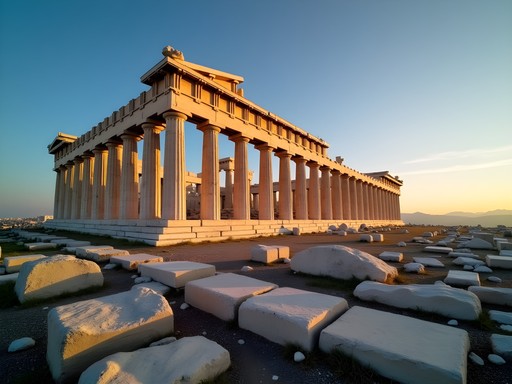







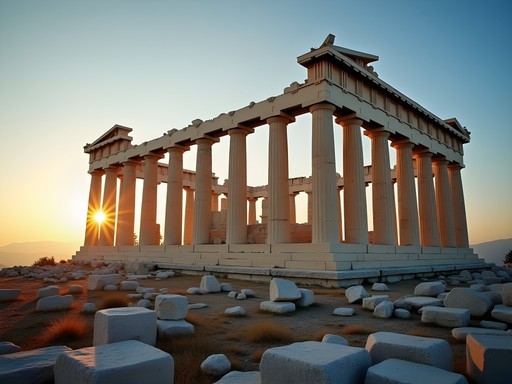
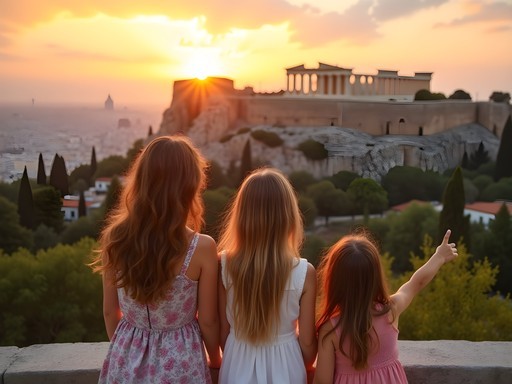
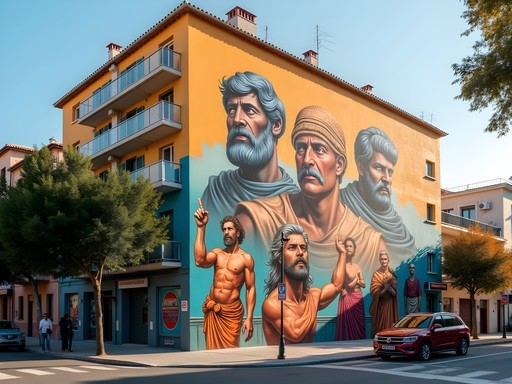
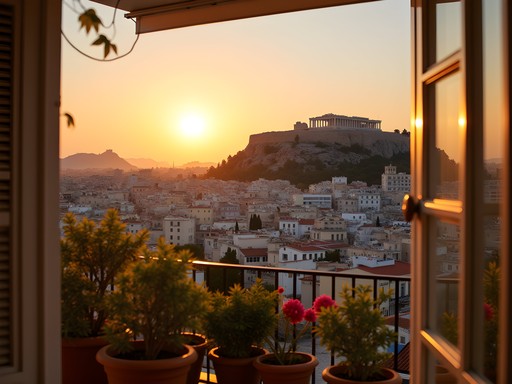
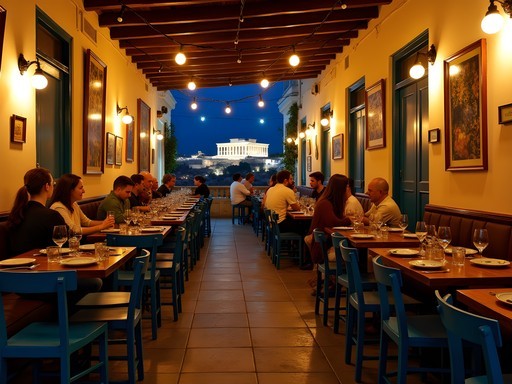
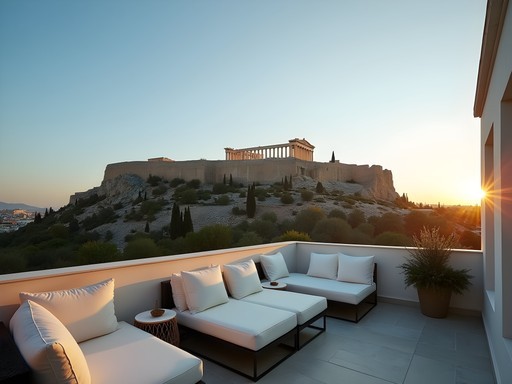

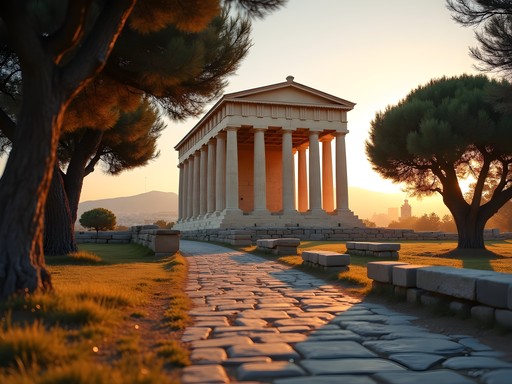
Comments
mountainphotographer
Just got back from Athens last week and this list is spot on. One thing I'd add—wear really comfortable shoes. The Acropolis is all marble and gets slippery, plus you're walking on uneven ancient stones. Also the neighborhood of Anafiotika below the Acropolis is like a little Greek island village in the middle of the city, super charming for photos.
beachzone
Good call on the shoes, didn't think about that!
photodiver
That sunrise shot is incredible! What time of year did you go?
Jennifer Rodriguez
Great post! For budget travelers, I'd add that the combined ticket (€30) covers the Acropolis plus six other major sites and is valid for 5 days—way better value than individual entries. The Acropolis Museum is separate though (€15). Pro tip: many sites are free on the first Sunday of each month November-March, but expect crowds. I also found the Rick Steves guidebook really helpful for understanding the historical context before visiting. The philosophical walk Sophia mentions is completely free and gives you that contemplative experience without the entry fees.
skypro
Beautiful photos! Really inspiring.
dreamninja
YES to the Acropolis Museum!!! That glass floor where you can see the excavation below absolutely blew my mind. And the cafe on the top floor has incredible views back to the Parthenon. Spent like 4 hours there and could've stayed longer honestly. The Byzantine section you mentioned is so underrated—most people skip it but those mosaics are stunning!
oceanguide
How early do you need to get there for dawn? Is it super crowded even then?
mountainphotographer
I went in May and got there right at 8am opening. Maybe 20 people total for the first hour. By 10am it was packed.
oceanguide
perfect, thank you!!
Olivia Sanchez
Sophia, this brought back such vivid memories! I had a similar dawn experience at the Acropolis three years ago and it genuinely changed how I approach ancient sites. That golden hour light is absolutely magical. I'm curious—did you explore any of the smaller Byzantine churches in Plaka? I stumbled upon Agios Nikolaos Rangavas and it was this incredible hidden gem with beautiful frescoes. The contrast between the grand classical sites and these intimate sacred spaces really captures that "ancient meets modern" vibe you're describing. Also, walking the Philosophers' Path at sunset is equally stunning if anyone's making a return visit!
photodiver
Adding this church to my list! Thanks for the tip
beachzone
Love this! Going to Athens in March, definitely doing the dawn visit now.
dreamninja
do it!! get there like 30 min before opening, totally worth it
backpack_wanderer
Love this! Saving for my trip next year!
Jean Wells
For those planning to follow Sophia's literary pilgrimage, I'd suggest visiting the National Library of Greece in the stunning Stavros Niarchos Foundation Cultural Center. While not ancient, it houses important manuscripts and offers a fascinating contrast between classical Greek thought and modern architectural interpretation. The center's park also provides one of the best panoramic views of Athens, including the Acropolis in the distance. If possible, time your visit for late afternoon when the light is particularly beautiful.
ClassicsProf
Great suggestion! The juxtaposition of the ancient and modern is what makes Athens so special. The Stavros Niarchos center is a masterpiece of contemporary architecture.
Venture X
Premium card with 2X miles, $300 travel credit, Priority Pass